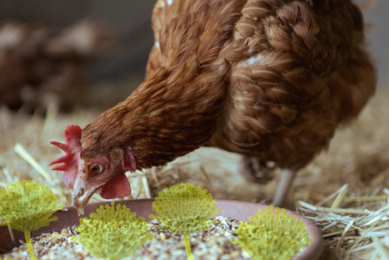Mycotoxin webinar: Now available on demand

The relationship with bacterial toxins and mycotoxins is a topic that needs more research. Also a holistic approach is needed for an effective mycotoxin control programme, according to the speakers at the webinar. The webinar – New ways to prevent mycotoxins – can now be re-watched on demand.
The live, interactive webinar was held on 16 April and was organised by All About Feed in cooperation with animal nutrition company Innovad.
Mycotoxins and effect on gut health
The webinar was kicked off by a insightful presentation from Prof dr Gunther Antonissen from Ghent University in Belgium. Prof Antonissen currently has more than 40 scientific papers in international peer-reviewed journals and is a well-known speaker at international events. In his presentation for this webinar, he updated the viewers on the impact of low to moderate levels of mycotoxins on intestinal health and how to deal with masked mycotoxins and the intestine. “The major problem with mycotoxins is not so much the acute disease, but rather the ingestion of low / moderate levels of toxins which may cause an array of metabolic, physiologic and immunologic disturbances. The gastrointestinal tract is the major target organ in this,” Antonissen explained. He also explained that the interaction with endo (bacterial) toxins in the gut is a topic that is gaining more research interest. “The toxins released by E. coli bacteria for example can increase the detrimental effects on gut health when they coincide with the presence of mycotoxins in the intestines as well,” Antonissen stated.
Going for an holistic approach
The second speaker was Dr Christos Gougoulias, head of Innovation at Innovad in Belgium. In his presentation during this mycotoxin webinar, he delved deeper into the impact of several stress factors on health and productivity of animals and which strategies can be used to overcome this. “There are many stress factors such as vaccination, endo (bacterial) toxins, change of feed, climate and animal handling amongst others. This all leads to oxidative stress at cellular level, which in turn leads to digestive disturbances, immune suppression and pressure on the liver. The latter is because the key recipient organ of toxin related stress is the liver as this organ is closely situated near the intestines and processes a lot of blood volume coming from the gastrointestinal tract,” Gougoulias explained. He also addressed that a holistic approach is needed to combat mycotoxins effectively. In this respect, Gougalias explained the mode of action, risk assessment tools and bio-monitoring tools of Innovad’s solution Escent® S.











